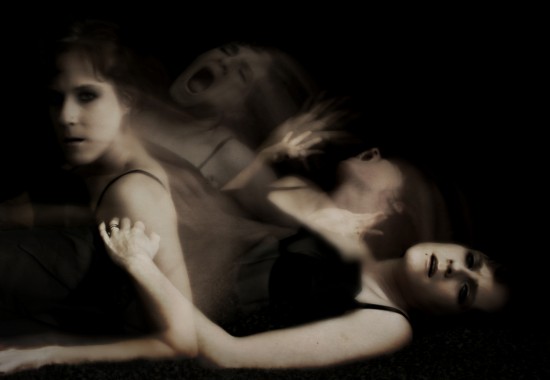heroine is a schizophrenic young adult who perceives that she is a murderer although in reality, no crime had been committed. This goes against the usual psychological thriller mold displayed in films such as "The Machinist" and "Shutter Island"-- 'disturbed' young man goes on a mind-bending journey that leads him to realize that he had killed someone, and is only jailed once this epiphany occurs, rightfully restoring justice. So our film is pretty much the opposite-- a young girl is institutionalized for confessing to a murder that never occurred, and cannot be released until she comes to the realization that it was all within her own mind. But what exactly do these fabricated memories reveal about our heroine's sub consciousness, and more importantly, her past as it relates to her present and future?
 The introduction partly consists of an interview, going on between a mental health expert in an asylum institution and the heroine herself. It goes along the lines of a session of therapy in prison, "How are you feeling today?" "What's on your mind?" yada yada yada. However, the camera's focus is entirely on the girl herself, while the therapist's voice can only be heard. (The ominous voice's presence is never seen.) Finally a countershot near the end of the introduction reveals that the chair across from the heroine contains no one: The conversation had all been her imagination, and the voice of the interviewer had come from inside her own head.
The introduction partly consists of an interview, going on between a mental health expert in an asylum institution and the heroine herself. It goes along the lines of a session of therapy in prison, "How are you feeling today?" "What's on your mind?" yada yada yada. However, the camera's focus is entirely on the girl herself, while the therapist's voice can only be heard. (The ominous voice's presence is never seen.) Finally a countershot near the end of the introduction reveals that the chair across from the heroine contains no one: The conversation had all been her imagination, and the voice of the interviewer had come from inside her own head. This type of audio hallucination, along with exaggerated symptoms of anxiety, paranoia, and disorganized speech/thought, is the best way we can provide justice to symptoms of schizophrenia without representing the disorder in a completely inaccurate manner. "Critics have faulted movies for their emphasis on the grossly disorganized and bizarre behaviors of characters with schizophrenia, many of whom are shown experiencing vivid visual hallucinations. In reality, although some schizophrenia symptoms may be bizarre and grossly disorganized...auditory hallucinations are far more prevalent than visual hallucinations." Not to mention that, "the psychiatric patient turned homicidal maniac is an ever-present feature of contemporary 'slasher' or 'psycho killer films,'" while in reality, people with this disorder are more likely to cause harm on themselves rather than others. So is there any way to create a creepy psychological thriller that completely does justice to the complexities of schizophrenia? Not exactly, but we might possibly be on the right track.
This type of audio hallucination, along with exaggerated symptoms of anxiety, paranoia, and disorganized speech/thought, is the best way we can provide justice to symptoms of schizophrenia without representing the disorder in a completely inaccurate manner. "Critics have faulted movies for their emphasis on the grossly disorganized and bizarre behaviors of characters with schizophrenia, many of whom are shown experiencing vivid visual hallucinations. In reality, although some schizophrenia symptoms may be bizarre and grossly disorganized...auditory hallucinations are far more prevalent than visual hallucinations." Not to mention that, "the psychiatric patient turned homicidal maniac is an ever-present feature of contemporary 'slasher' or 'psycho killer films,'" while in reality, people with this disorder are more likely to cause harm on themselves rather than others. So is there any way to create a creepy psychological thriller that completely does justice to the complexities of schizophrenia? Not exactly, but we might possibly be on the right track. "Critics of entertainment media have indicated that cinematic depictions of schizophrenia are stereotypic and characterized by misinformation about symptoms, causes, and treatment." My production team cannot wait to develop a character within a plotline that, although eerie and suspenseful, is not a complete deviation from what could very well occur to someone experiencing these unsettling symptoms. More information coming soon.
"Critics of entertainment media have indicated that cinematic depictions of schizophrenia are stereotypic and characterized by misinformation about symptoms, causes, and treatment." My production team cannot wait to develop a character within a plotline that, although eerie and suspenseful, is not a complete deviation from what could very well occur to someone experiencing these unsettling symptoms. More information coming soon.http://ps.psychiatryonline.org/doi/abs/10.1176/appi.ps.201100371
Owen Ph. D, P. (2012, July 7). Portrayals of Schizophrenia by Entertainment Media: A Content Analysis of Contemporary Movies. Retrieved March 10, 2015, from http://ps.psychiatryonline.org/doi/abs/10.1176/appi.ps.201100371

No comments:
Post a Comment